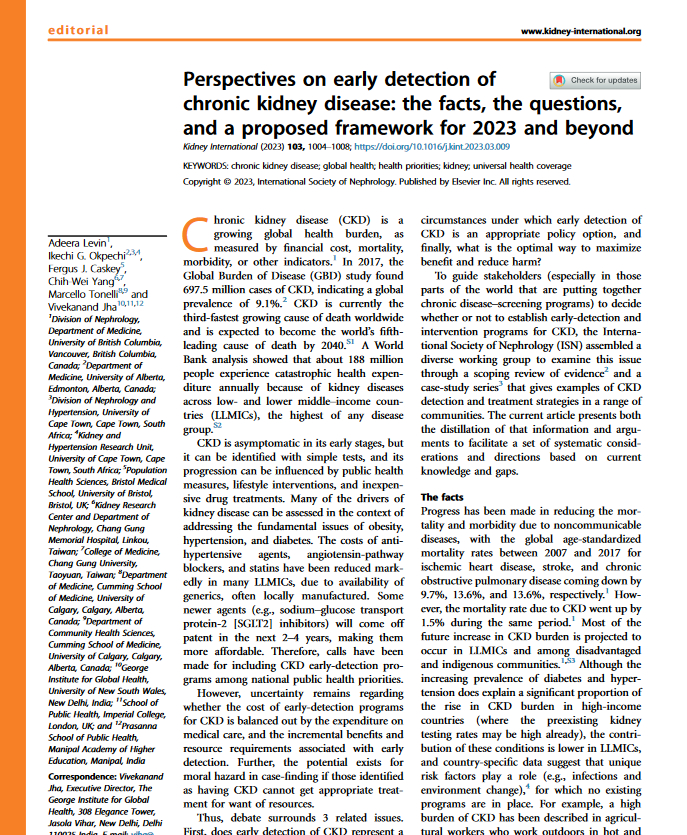Science Direct: Social Sciences and Medicine
Epistemic struggles: The role of advocacy in promoting epistemic justice and rights in mental health
Article
22 Nov 2024
International Society of Nephrology
18 Jul 2024

Responsible use of limited healthcare and community resources to improve the kidney health of communities is critical. Ensuring the optimal allocation of these resources requires a multifaceted approach that can address the complex needs of the population effectively. To this end, we encourage the thoughtful application of a comprehensive framework designed to facilitate meaningful change. This framework should be grounded in robust research principles that provide a strong evidence base for interventions.
Moreover, it is essential to incorporate patient and community engagement strategies that prioritize the voices and experiences of those directly impacted by kidney health issues. By actively involving patients and community members in the planning and implementation of healthcare initiatives, we can foster a more inclusive and responsive healthcare environment.
An enhanced understanding of the political landscape is also crucial. This includes recognizing the influence of policy decisions on healthcare availability and quality, as well as advocating for policies that support improved kidney health outcomes. Effective advocacy efforts can help to secure necessary funding, resources, and legislative support for kidney health initiatives.
Additionally, targeted communication strategies are vital for disseminating information and raising awareness about kidney health. These strategies should be tailored to reach diverse audiences, utilizing various platforms and media to ensure broad and effective outreach. By combining these elements—research, engagement, political insight, and communication—we can create a holistic approach that maximizes the impact of healthcare resources and fosters sustainable improvements in kidney health within our communities.